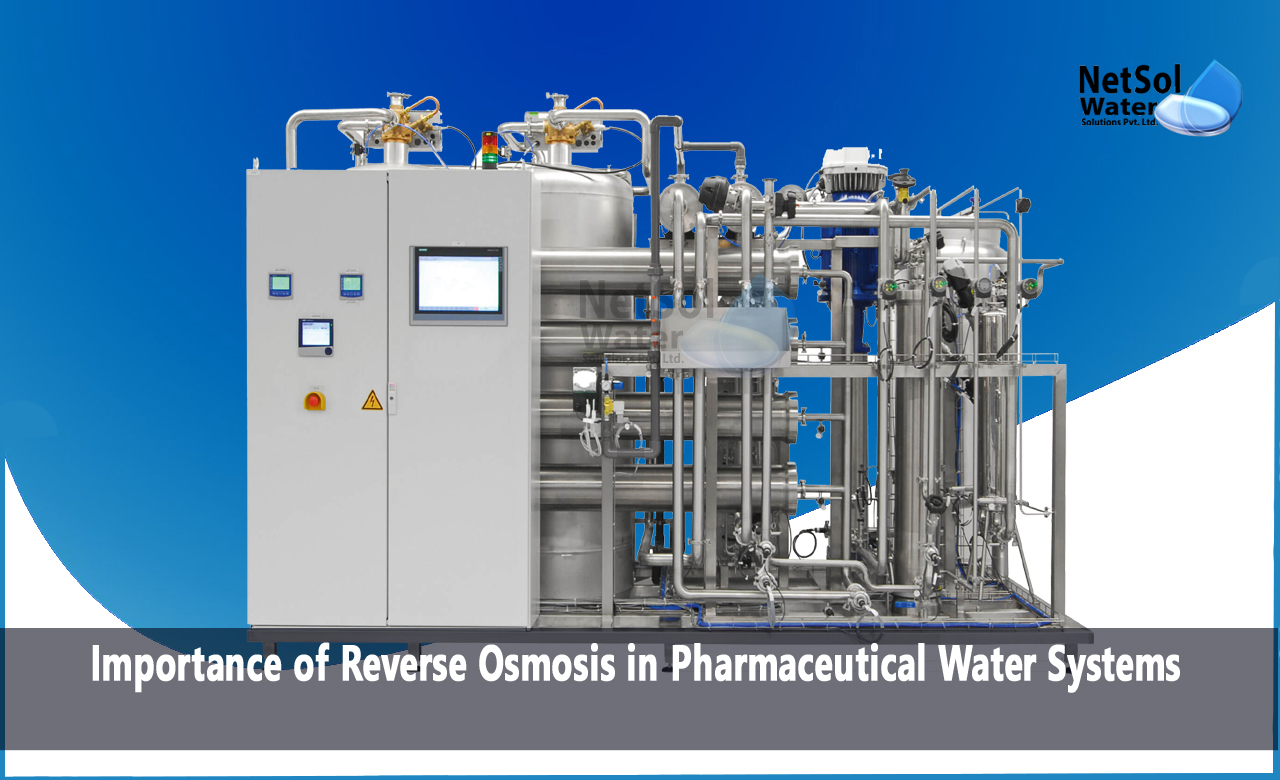In the pharmaceutical industry, water plays a critical role in various manufacturing processes and formulations. The quality and purity of water used in pharmaceutical applications are of utmost importance to ensure product safety, efficacy, and compliance with stringent regulatory standards. Reverse osmosis (RO) technology has emerged as a reliable and effective method for producing high-purity water in pharmaceutical water systems. In this blog, we will explore the importance of reverse osmosis in pharmaceutical water treatment and its role in ensuring the highest purity standards.
Understanding Reverse Osmosis in Pharmaceutical Water Systems:
Reverse osmosis is a membrane-based water treatment process that removes impurities, dissolved solids, and contaminants by applying pressure to force water molecules through a semipermeable membrane. The membrane acts as a barrier, allowing only pure water to pass through while rejecting contaminants such as salts, minerals, organic compounds, and microorganisms. Reverse osmosis is highly effective in producing purified water with a high degree of purity and quality.
Importance of Reverse Osmosis in Pharmaceutical Water Systems:
- Meeting Regulatory Standards: The pharmaceutical industry is subject to stringent regulations and quality standards to ensure the safety and efficacy of drugs and pharmaceutical products. Regulatory agencies, such as the FDA, require pharmaceutical manufacturers to use water of appropriate quality for various purposes, including formulation, cleaning, and manufacturing processes. Reverse osmosis plays a crucial role in meeting these regulatory standards by providing high-purity water that meets or exceeds the specified quality requirements.
- Removal of Contaminants: Pharmaceutical water systems require water that is free from impurities, particulates, microorganisms, endotoxins, and other contaminants. Reverse osmosis effectively removes these contaminants, ensuring that the water used in pharmaceutical applications is of the highest purity. This is particularly important for critical processes such as drug formulation, where even trace amounts of contaminants can have significant impacts on product quality and patient safety.
- Consistency and Reliability: Reverse osmosis systems provide a consistent and reliable source of high-purity water. The technology is capable of delivering a consistent level of water quality, allowing pharmaceutical manufacturers to maintain the desired purity standards throughout their operations. This consistency is essential for ensuring reproducibility and consistency in drug manufacturing processes.
- Control over Water Quality: Reverse osmosis allows pharmaceutical manufacturers to have better control over the quality of water used in their operations. The system can be tailored to meet specific purity requirements by adjusting the membrane configuration, pretreatment processes, and monitoring parameters. This level of control enables pharmaceutical companies to customize their water treatment systems according to their unique needs and maintain a reliable supply of purified water.
Considerations for Reverse Osmosis in Pharmaceutical Water Systems:
- System Design and Validation: Reverse osmosis systems for pharmaceutical water treatment require careful design, validation, and qualification processes. This includes selecting appropriate membrane materials, designing an efficient pretreatment system, implementing monitoring and control measures, and conducting regular performance validation to ensure compliance with regulatory requirements.
- Maintenance and Monitoring: Regular maintenance, cleaning, and monitoring are essential to ensure the continued performance and reliability of reverse osmosis systems. This includes membrane cleaning, filter replacement, monitoring of system parameters (such as pressure, flow rate, and quality indicators), and conducting periodic water quality testing.
- Compliance with Pharmacopeial Standards: Pharmaceutical water systems must comply with pharmacopeial standards, such as the United States Pharmacopeia (USP) or the European Pharmacopoeia (Ph. Eur.), which define the quality attributes and acceptance criteria for pharmaceutical water. Reverse osmosis systems should be designed and operatedin accordance with these standards to ensure compliance.
Conclusion:
Reverse osmosis plays a crucial role in pharmaceutical water systems by providing high-purity water that meets stringent regulatory standards. The technology removes impurities, contaminants, and microorganisms, ensuring the water used in pharmaceutical applications is of the highest quality. By implementing reverse osmosis systems, pharmaceutical manufacturers can maintain control over water quality, achieve consistent results, and ensure the safety and efficacy of their products.
Netsol Water is Greater Noida-based leading water & wastewater treatment plant manufacturer. We are industry's most demanding company based on client review and work quality. We are known as best commercial RO plant manufacturers, industrial RO plant manufacturer, sewage treatment plant manufacturer, Water Softener Plant Manufacturers and effluent treatment plant manufacturers. Apart from this 24x7 customer support is our USP. Call on +91-9650608473, or write us at enquiry@netsolwater.com for any support, inquiry or product-purchase related query.



